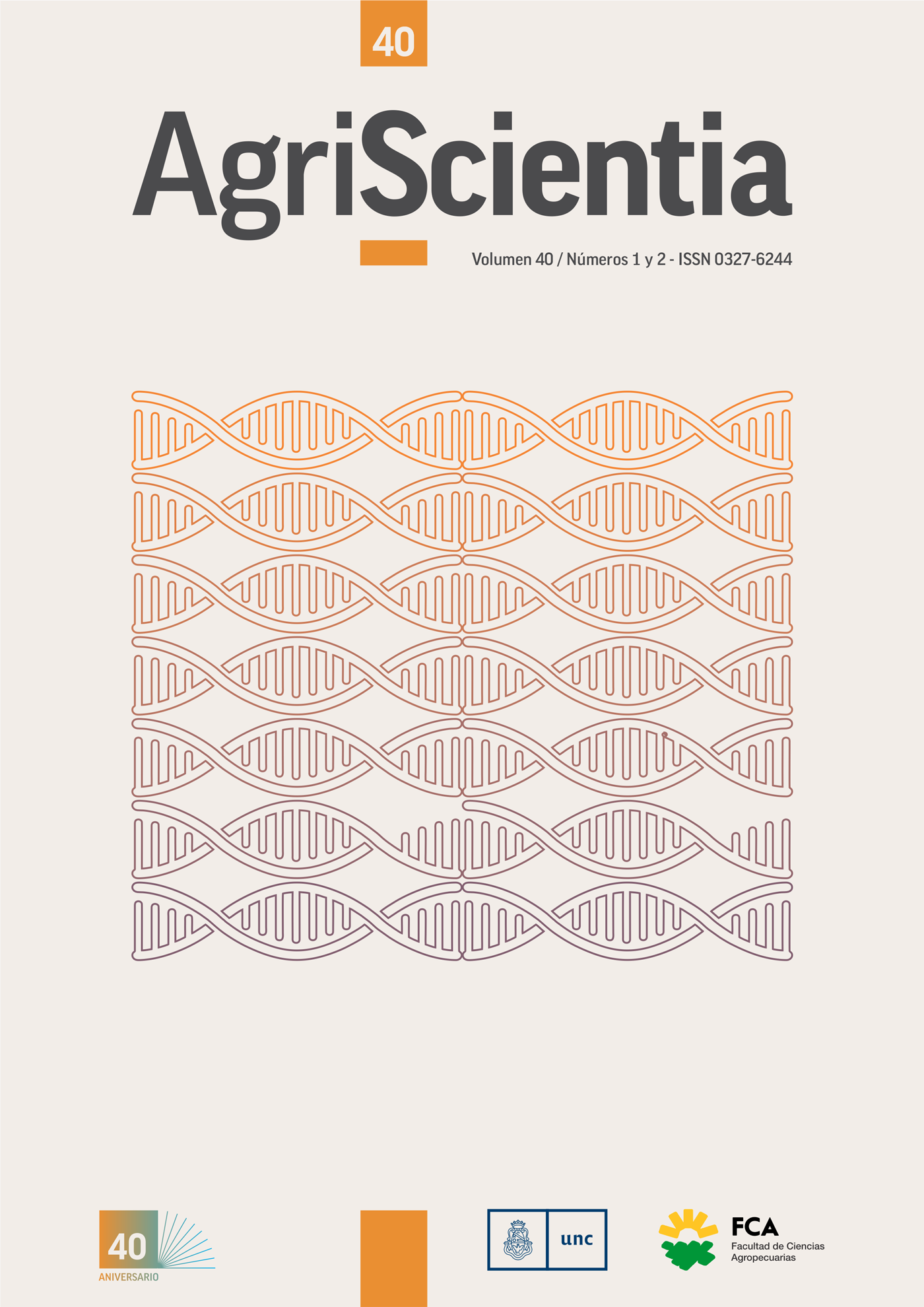Complexity in curricular networks: Agronomic Engineering curriculum, Universidad Nacional de Córdoba (Argentina)
Main Article Content
Abstract
Network theory is beginning to be discussed in the framework of educational sciences. Network analysis can help visualize the curricular hidden structure of different university careers, recognizing weak links or disconnections. However, currently there are few precedents of practical applications in the curricular diagnosis of university degrees. This work studies the curricular relationships between curricular spaces of an agronomic engineering degree, applying the network theory. Relationships were quantified between curricular spaces, identifying the trength of the links between them at a horizontal and vertical axis, in spaces of knowledge axes and knowledge cycles, analyzing the extent of recursivity of the contents based on their programs. The curricular spaces from the superior cycles are better interrelated than those from the lower cycles. The nodal curricular spaces are those with the largest number of internal and external links. Consolidation areas tend, in eneral, to the integration of knowledge. It is suggested to strengthen horizontal and vertical links among curricular spaces, especially in the basic cycles, either directly or through nodal curricular spaces, incorporating common activities or linking common practical contents.
Downloads
Article Details

This work is licensed under a Creative Commons Attribution-ShareAlike 4.0 International License.
References
Aldrich, P. (2015). The curriculum prerequisite network: Modeling the curriculum as a complex system. Biochemistry and Molecular Biology Education, 43(3), 168-180. https://doi.org/10.1002/bmb.20861
Alhadeff-Jones, M. (2009). Revisiting educational research through Morin’s paradigm of complexity. Complicity: An International Journal of Complexity and Education, 6(1), 61-70. https://doi.org/10.29173/cmplct8807
Borgatti, S., Everett, M. y Freeman, L. (2002). Ucinet 6 for Windows: Software for Social Network Analysis. Harvard: Analytic Technologies. https://pages.uoregon.edu/vburris/hc431/Ucinet_Guide.pdf
Conrero, J. M. (Coord.). (2013). Planificación Estratégica Participativa 2013. Informe final. Córdoba: Universidad Nacional de Córdoba, Facultad de Ciencias Agropecuarias. http://www.agro.unc.edu.ar/~copep/wp-content/uploads/2013/10/PEP_2013_2018_FCA_UNC.pdf
Dawson, S. y Hubball, H. (2014). Curriculum analytics: Application of social network analysis for improving strategic curriculum decision-making in a researchintensive university. Teaching and Learning Inquiry, 2(2), 59-74. https://doi.org/10.2979/teachlearninqu.2.2.59
Di Rienzo, J, Casanoves, F., González, L., Tablada, M., Robledo, C. y Balzarini, M. (2020) InfoStat. Córdoba: Grupo InfoStat, FCA, Universidad Nacional de Córdoba. http://www.infostat.com.ar
FCA-UNC. (2004). Plan de Estudios 2004. Texto ordenado. Córdoba: Universidad Nacional de Córdoba. Facultad de Ciencias Agropecuarias. http://www.agro.unc.edu.ar/~alumnos/wp-content/uploads/2021/05/PLAN-DEESTUDIOS-2004-TEXTO-corregido2008.pdf
Fenwick, T. y Edwards, R. (Eds.). (2012). Researching education through actor-network theory. New Jersey: John Wiley & Sons.
Maldonado, C. E. (2014). ¿Qué es eso de pedagogía y educación en complejidad? Intersticios Sociales, 7, 1-23. https://doi.org/10.55555/IS.7.51
Mederos Machado, M. C., Balmaceda Espinosa, C. E. y Balmaceda Mederos, M. (2017). Perspectivas epistemológicas curriculares de la ingeniería agropecuaria. Revista Ciencias Pedagógicas e Innovación, 5(1), 123-127. https://doi.org/10.26423/rcpi.v5i1.163
Morin, E. (1998). Introducción al pensamiento complejo. Barcelona: Gedisa.
Mystakidis, S. (2021). Deep Meaningful Learning. Encyclopedia, 1(3), 988-997. https://doi.org/10.3390/encyclopedia1030075
O’Meara, J. y Vaidya, A. (2021). A network theory approach to curriculum design. Entropy, 23, (10), 1346. https://doi.org/10.3390/e23101346





